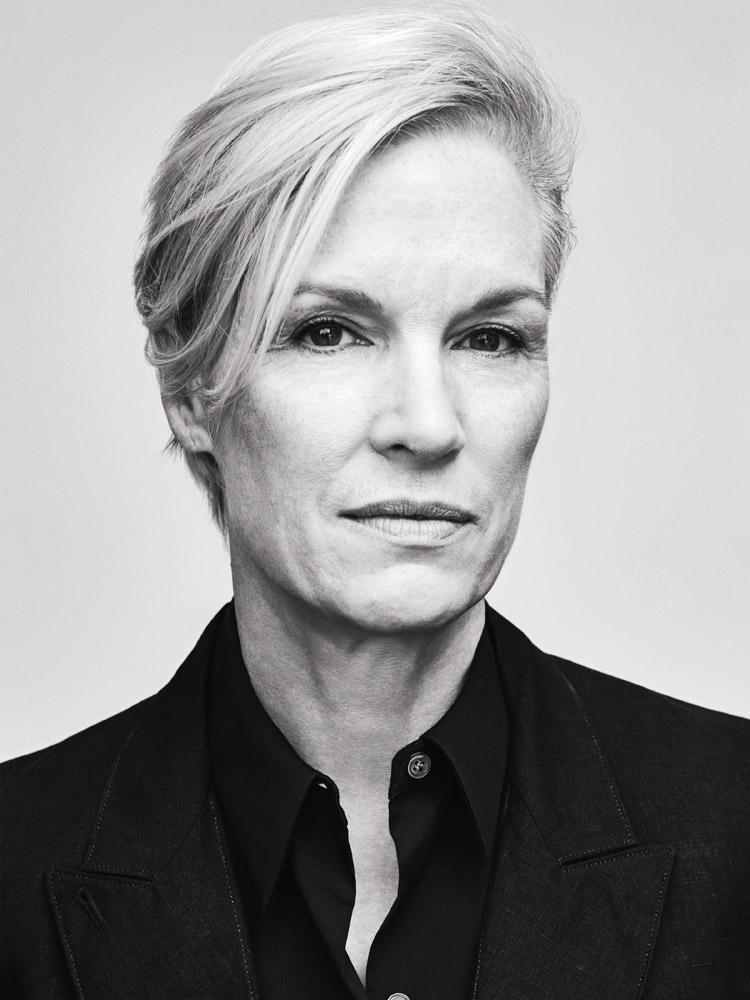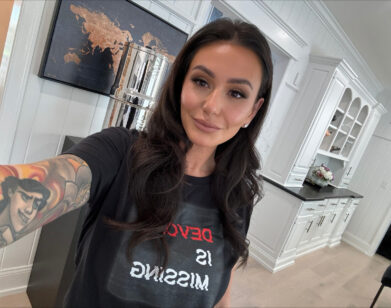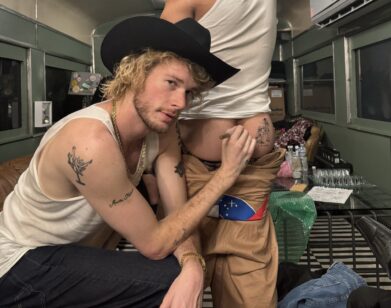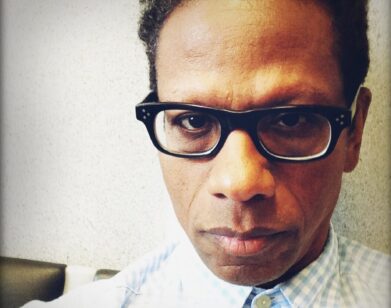Cecile Richards
It’s no good to have a right if you literally can’t access it. Whether it’s the restrictions on people’s voting or lack of access to reproductive care, they hurt low-income women of color the most in this country. That’s not by chance. cecile richards
As the president of Planned Parenthood, Cecile Richards, 58, is perhaps the most visible face of women’s health care in the country, not just going to bat for the physical and sexual health and reproductive rights of women across the nation, but also serving as an avatar for the organization’s role in broader discussions of feminism, bodily autonomy, LGBTQ issues, and affordable health care. Last fall, when faced with calls for federal defunding of Planned Parenthood after a series of highly edited, secretly recorded videos released by the antiabortion group the Center for Medical Progress purported to show that Planned Parenthood was selling fetal tissue for profit, Richards testified before Congress and was subjected to hostile questioning/posturing from House Republicans. She kept a steely reserve, hammering home the tenets that make Planned Parenthood a vital presence in many women’s lives. (After a Texas investigation into the matter, two antiabortion activists involved in producing the videos were indicted by a grand jury for tampering with government records.) At a time when abortion has become a wedge issue for the right and Planned Parenthood faces opponents on the state and federal level bent on restricting its ability to provide women’s reproductive health care, Richards has proved to be a tireless force to be reckoned with.
A true native daughter of Texas, Richards was born in Waco and raised in Dallas and Austin in a household where social justice and progressive politics were the mother tongue. Her father, David, has run a civil-rights-minded law practice in Austin for over 50 years, and her mother is the late Governor Ann Richards, who served from 1991 to 1995 and was known for her tough-minded approach to governing and brassy persona (not to mention her legendary “Poor George, he can’t help it” quip directed at H.W. Bush at the ’88 Democratic National Convention). After graduating from Brown, where she skipped graduation to join in on an antiapartheid protest, Richards worked as a labor organizer, bringing together garment workers in her home state and hotel workers in New Orleans. In 2002 and 2003 she served as the deputy chief of staff for Nancy Pelosi, then newly elected to the position of Democratic whip in the House of Representatives, before founding and serving as president of America Votes, an organization to get out the vote. Planned Parenthood came calling in 2006.
In this, an already tense election year, and shortly before the Supreme Court was scheduled to hear arguments on Whole Woman’s Health v. Hellerstedt, a landmark case regarding access to legal abortion care in Texas, actress and trans-rights advocate Laverne Cox called up Richards to discuss the finer points of Planned Parenthood’s ongoing mission to preserve and expand health care for those who need it most.
LAVERNE COX: Advocacy and activism is something that is a part of my life, speaking out on issues that are important to me. But for you, it’s a career. How did you end up where you are? What was your path to becoming president of Planned Parenthood and representing women’s health?
CECILE RICHARDS: Well, I was born into it, I guess. I know you are from the South as well. I grew up in Texas. My parents were so appalled at everything that was happening in Dallas that they got involved in every movement that came through town, whether it was the civil rights movement or the women’s movement. When the women’s movement started, my mom felt like she had found her calling. Eventually, she ran for governor of Texas, which was unheard of. I guess it’s still unheard of these days. But they really raised us all to be activists. I’m so proud to be at Planned Parenthood. It’s something I never even dreamed of doing, but it’s an organization that provides care to so many folks, many of whom don’t really have another health care provider and certainly not a place they can go to and not feel shamed or judged. For whatever reason, reproductive health care is still considered to be a taboo subject in too many areas of the country.
COX: I think what a lot of people don’t fully understand about Planned Parenthood is the cost of health care. So when you are attacking Planned Parenthood, you really are making it more difficult for working-class folks to have access to health care. Right?
RICHARDS: That’s absolutely right. In fact, the vast majority of the patients that come to Planned Parenthood for a whole host of different reasons may not have another health care provider, or they’re low income, or they may not have health insurance. We’re really proud to provide health care to everyone no matter what. One in five women in America has been to Planned Parenthood for health care at some point in their lifetime. That means a lot of folks from different walks of life, particularly in states where there may not be a lot of other options, and certainly not other options if you need to get in and see someone affordably. In Texas, where I’m from, they’re already showing that as they’ve cut Planned Parenthood out of the health care system, more than a hundred thousand women have now gone without birth control access or basic health care access.
COX: It feels like that’s exactly what they want to have happen in Texas, though. It seems that the laws are set up to deny women access to basic health care, to abortion care if they need it.
RICHARDS: You’re exactly right. It’s not just a theoretical problem. What we’re seeing is that people actually are losing care. That’s what’s heartbreaking. I think because a lot of legislation has gone after women, we’re seeing women in areas of Texas where they’re now going to have to drive hundreds of miles to get the kind of reproductive health care choices they need. It’s unconscionable. After all that we did under President Obama to get better access to health care, that some states are going backwards, it’s infuriating.
COX: It’s terrifying. What can we be doing more of? Now with the death of Justice Scalia, we revisit [the Supreme Court’s role is this issue]. I understand there’s a case [Whole Woman’s Health v. Hellerstedt] that the Supreme Court is scheduled to hear, around reproductive rights in Texas.
RICHARDS: In March, there will be a case. The case that’s going to be heard is really about whether or not Texas, and therefore any other state, can pass these outrageous restrictions on women’s access to abortion rights in particular. Right now, if you live in rural Texas, where millions of people do, you have to drive to a big city to get access to a safe and legal abortion. Even though it’s a right under the Constitution, it’s not a right that you can actually access. I think what happens in March is going to be incredibly important. This is putting such a spotlight on the presidential election because if President Obama is denied the right to appoint a ninth justice to the Supreme Court—which I hope he won’t be—it’s absolutely going to fall to whoever’s elected in November. That could make the difference on a whole host of issues: women’s health issues, LGBT rights. All the things we’ve fought for all our lives are really at stake in November.
COX: Speaking of LGBT rights, health care for trans people is a huge issue for me. How has Planned Parenthood worked to accommodate trans folks and trans health care?
RICHARDS: It’s a growing area of health care for Planned Parenthood around the country. What we’re seeing, I can say in the last couple of years, is just an explosion of access. It’s only going to continue to grow. The other thing that is important to me, Laverne, and what we are really working on at Planned Parenthood, is how important it is for our patients to be able to go to a health care provider where they’re not judged and they’re not stigmatized and they’re treated completely with respect. I was at a big dinner here in New York, and one of the most prominent transgender activists in the area of health care said, “It’s sort of amazing once a Planned Parenthood health center opens up, it’s like the Underground Railroad. Everyone knows.” I think what you have done not only as an activist, and certainly in your artistry—like through your character on Orange Is the New Black, which everyone, including myself, watches religiously—you have really opened up this topic to so many folks who probably didn’t even understand the need for basic health care. What would be your hope for what Planned Parenthood can do in this space?
COX: What I’ve heard from so many trans people is just having access, having health care providers who we don’t have to educate. For years, for decades now, trans people have had to educate our providers about how to proceed with treating us. The big issue is that doctors and health care providers are trained enough and up to date on the specific needs of trans people. Then, trans people need to feel safe when they go into health care facilities. So often I’ve heard trans people say that they were mis-gendered or there wasn’t a category for them. Even when you’re filling out an intake form, and it just has “male” or “female,” that doesn’t accommodate the full breadth of who trans people are. At the Callen-Lorde Community Health Center, where I go in New York City, you’ll have options like “TransFemale/TransWoman,” “TransMale/TransMan,” “Genderqueer/Gender nonconforming.” There are different options for trans people so that they can feel like they are included. There are so many aspects of health care beyond just hormones and surgery for trans people. Knowing that a trans man might need a pap smear, or prostate checks for women, and that both trans women and trans men probably need breast exams, all of those little things people sometimes don’t think about. They just think about the transition part of it. So what’s important is having health care professionals who really are aware of all those issues and can address those issues, and knowing the right questions to ask when they are talking to trans people to make us feel safe. Often we just don’t feel safe, and so many of us are working with so much trauma. If we can let trans folks know that it is safe to go to Planned Parenthood, that there’s a safe place for them where they won’t be traumatized, those things are really huge.
RICHARDS: I love what you’re saying about educating health care providers, because that’s what I hear from our patients. I’m so proud of our patients who can now go on social media or tell their story. It’s helping educate not only folks at Planned Parenthood but, I hope, folks around the country. We do a lot of screenings at Planned Parenthood for intimate partner violence, because so many of our patients may not have anyone else to talk to about what’s going on in their life. I want to make sure that we don’t forget the importance of addressing the totality of people’s health care needs and emotional needs as a health care provider.
COX: Absolutely. Speaking of emotional needs, so often when I meet students when I’m traveling, I hear, “How do you do self-care?” What do you do to take care of yourself? What do you do to unwind so that you can ready yourself for these fights on a daily basis?
RICHARDS: Well, besides binge-watching Orange Is the New Black, which actually makes my life feel very, very easy … Look, I feel very lucky. I feel so fortunate to be able to work with an organization where people are driven by a mission and where you literally change people’s lives. I’ve always worked on issues of social justice, but I’ve never met braver people than the doctors and clinicians who get up every day and walk through picket lines or protesters or people yelling ugly things at them, and are just there to provide health care. That is amazing. I don’t know where you grew up in Alabama, but I was in Mobile …
COX: I’m from Mobile!
RICHARDS: Oh, you are! I was in Mobile not long ago, and I met with the woman who runs the health center there. She said going to work was so important, because it was a judgment-free zone in Mobile, and there weren’t many. It was just a place people could feel safe and taken care of. That keeps me going, for sure.
COX: I think we all need to feel safe and okay. The people who work at Planned Parenthood, so many of them are heroes, because it’s not always safe working there. They must go in every day with this amazing sense of purpose. What are you seeing and hearing from young people about what motivates them, what they care about?
RICHARDS: I think exactly what you were talking about, which is feeling like folks understand them and their needs. We text and chat with young people every day. I think they are concerned with not being labeled, not being stigmatized. They’re absolutely changing this country in terms of teaching everyone else about what it means to be able to have whatever gender identity, whatever kind of loving relationship they want. I frankly think they are changing the attitudes in America. Thank goodness they are. I don’t know how long it would take us otherwise. But I’m curious, when you talk to young people, what do they want?
COX: They know they have a voice, but they want their voices to be heard. They want to be authentic, and they want to be themselves, and they want to have a mirror. I think that when I go to speak to students, they want to see themselves somehow reflected in me, and in something bigger than themselves. We’re editing Free CeCe!, the documentary that I’ve been working on with Jac Gares, about CeCe McDonald. We’ve been shooting since 2013. CeCe McDonald is an African-American transgender woman who spent 19 months in a men’s prison for defending herself during a racist and transphobic attack. Watching CeCe’s story and looking at this film that we’re putting together and thinking about the obstacles that she’s still dealing with, and her brilliance and her sense of survival, I’m so deeply inspired by CeCe and by so many young people. There’s just this will. There’s just this persistence of hope in the face of unimaginable circumstances. What’s exciting now is that all of these young people have the capacity to change, but then there are these systems still in place that are patriarchal and sexist and transphobic and any number of things. I think we as individuals have the power to change these systems, and to do it with a voice and with a sense of empathy and love for everyone’s voice. I think what the internet has done is given everyone a space to have a voice. Young people understand that better than anybody else. If we lift everyone’s voice, then we can change the world.
RICHARDS: I totally agree. And I am glad you used that word empathy, because I feel like even though the politics of today doesn’t feel very empathetic, I think that the courage of all people, but young people in particular, to publicly tell their story is. As you say, when people can identify or see themselves, whether it’s in you or someone else who’s had the courage to tell their story, it is transformative. Now everyone has that opportunity. I do think it takes tremendous courage, though. I’m just so amazed by people who are willing to share things that, in the past, no one would have ever talked about. Folks in popular culture being willing to take on issues, I think that is such a key part of having a culture shift and an institutional shift. But you must see that as well.
COX: For me, being in the media has been a powerful tool and a huge responsibility. [both laugh] Pop culture’s really cool. I was trying to catch up on my Scandal this morning because I’m in Canada. I just can’t help but think about this powerful episode where Olivia Pope needs to terminate her pregnancy. I don’t know if you know that episode. It’s really beautiful. The women I’ve known who have had to terminate pregnancies, it’s the hardest decision they’ve made. It’s the most difficult thing they’ve ever had to go through. So many of the discussions around Roe v. Wade, it’s really a privacy issue. There should be some things still that are private, that should be sacred and between a woman and her doctor or a woman and her family. As a trans woman, me having the right to do whatever I want and need to do with my body should be my right. And it should be my business.
RICHARDS: Well, that’s it. It really has to do with bodily autonomy when it comes down to it. I do think that was such a powerful episode. I think Kerry Washington is brave. I think Shonda Rhimes is heroic. Every family, everybody, deals with these issues one way or another. I think to really humanize it and say, “This is the most personal decision that many people will make in their lifetime,” and the thought that anyone other than that person would make that decision, and that you would put that in the hands of government, is just unthinkable. Sophia [Cox’s character on OITNB] doesn’t even have her own bodily autonomy there in prison. To me, it’s very similar to what we’re dealing with at Planned Parenthood.
COX: There’s a lot at stake with this election. Turnout is so important.
RICHARDS: That’s right.
COX: It’s so weird. I’ve always been registered Independent as long as I’ve been a voter. I guess I’m not attracted to binaries in terms of gender or political party. [both laugh] I’m obviously pretty progressive, but I’m not part of the major party primary process this season in New York State as an Independent. How would you suggest we keep folks motivated to stay involved and to push forward?
RICHARDS: I think young people are recognizing the power of institutions, and we have to really dismantle a lot of the stigma and shame, culturally, but we also have to change things in terms of how government and institutions deal with this. The simplest way is to be involved in elections. We’re in the middle of a very hot primary process right now. What I’m encouraged by is that young people are taking politics seriously and taking voting seriously. Young people really understand that all of the issues that we’re talking about are completely intersectional. It’s no good to have a right if you literally can’t access it. Whether it’s the restrictions on people’s voting or lack of access to reproductive care, they hurt low-income women of color the most in this country. That’s not by chance. We still know folks in Alabama and Texas where your rights—whether it’s your right to vote, your right to health care—can really depend on your zip code. We have to understand and all share empathy with folks who are living in states where it hasn’t changed that much from the 1950s. I mean, I go home back to Texas, and I think, “Boy …” To be transgender, to be even a gay couple in west Texas, it’s not that easy. And you add in race …
COX: Yeah. Optimal well-being and health care is about psychological and emotional health. It’s about physical health. It’s about economic health. Health care is a big umbrella.
RICHARDS: If you don’t have access to health care, it’s very hard to be able to live your life.
LAVERNE COX IS AN ACTRESS AND TRANS RIGHTS ADVOCATE, WHO WILL NEXT BE SEEN ON SEASON FOUR OF ORANGE IS THE NEW BLACK AND AS DR. FRANK-N-FURTER ON FOX’S THE ROCKY HORROR PICTURE SHOW.







